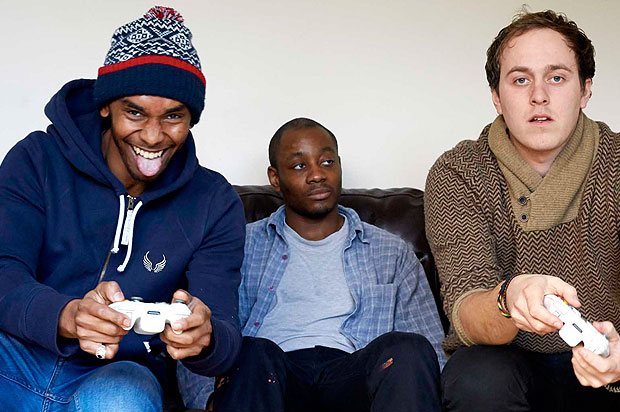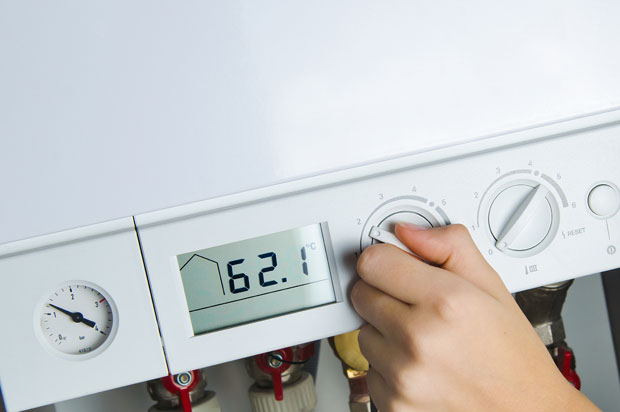TV licence
Americans think it's crazy that in Britain we need a licence to watch TV, but if you are caught without one you could end up with a serious fine.

Umm...guys? That isn't the remote.
Whether you want to watch or record live TV on any channel, or download or watch BBC programmes on iPlayer, you’ll need a TV licence. Without a valid licence, you risk prosecution and a maximum penalty of up to £1,000, plus any legal costs. You can find out more about pricing and pay options (yearly, quarterly, monthly or weekly) on the TV licencing website.
I watch TV on my computer, do I need one?
It doesn’t matter if you watch TV on your computer, tablet, games console or mobile phone; you still need a licence if you watch TV programmes as they’re being broadcasted. This also applies to watching TV through an aerial, cable, satellite or streamed broadcasts over the internet.
From 1st September 2016 the rules changed and you now need a TV licence even if you only watch catch-up services, such as iPlayer (see here).
Students in halls
Your room needs to be covered by its own licence if you’re plugged in to watch or record programmes as they’re being shown on TV or live on an online TV service, or if you download or watch BBC programmes on iPlayer. If there are TVs in communal areas, check with your halls’ manager to see if they’re covered by a halls’ licence.
Claiming back your TV licence
If you’re a student in halls less than a full year, make sure you claim back the remainder of your licence at the end of your tenancy.
You can also get a refund if you:
- Are exchanging a colour TV for a black and white one
- Have bought two licences by accident
- Are moving abroad, or there has been a death.
Living in shared accommodation
If you live in share accommodation, you’ll probably only need one licence between you if you have a joint tenancy agreement for the whole house – this is the most common type of shared house arrangement. You might need your own licence if your accommodation is self-contained. That means you have exclusive access to washing facilities, or your own entrance to the property. You will also need your own licence if you have a separate tenancy agreement for your own room.
I’ve got a TV, but I don’t watch TV
If you’ve got a television but you don’t watch broadcast TV on it then you can use it without needing a TV licence. For example, if you only use it for watching DVDs or with a games console then it’s perfectly legal not to have a TV licence.
However, you need to make sure that it’s not capable of receiving a TV signal. The TV Licensing Officer – and courts – will struggle to believe you if the aerial is still plugged into the back of the TV. Covering up the aerial plug would be a good start.
Can TV Licensing people inspect my property?
TV Licensing Officers can visit your property and ask to inspect your TV equipment, but you don’t have to let them in. (University halls of residence often make it a condition of the tenancy agreement that you will let TV Licensing officers inspect your room.)
If you think a TV Licensing officer was unnecessarily confrontational, you should make a complaint to TV Licensing. You must let a TV Licensing officer in if they have a warrant from the courts.
What if I’m blind?
If you, or someone you live with, are blind or severely sight impaired, then you can get a 50% concession on your licence.
What if I live with my grandparents?
People over 75 are entitled to a free TV licence, even if they live with younger relatives or friends. So, if your granny and granddad are shacked up in your back room, then get them to apply for a free TV licence.
What if I don’t need a licence?
If you don’t need a TV Licence, it is a good idea to let TV Licensing know so that they can update their details. They won’t then send you any letters for approximately two years.
Next Steps
- Chat about this subject on our Discussion Boards.
By
Updated on 19-Aug-2016
No featured article










